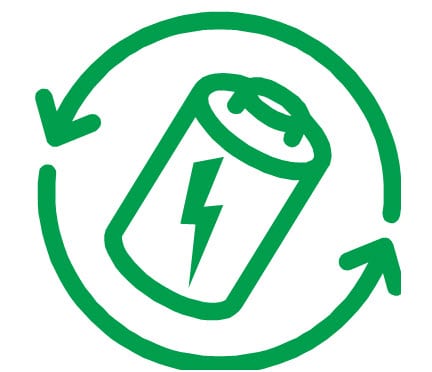
Honda teams with Japan Metals and Chemicals to recycle batteries
April 26, 2012 0 By Julie CampbellBattery recycling is a problematic process
For as long as batteries have existed, recycling them has been an issue. In the case of large scale nickel-hydride batteries, which are commonly used in electric vehicles, the process of separating the battery’s elementary components and recovering a viable amount of nickel and cobalt is notoriously difficult. Japanese automaker Honda believes that it may have solved the problems inherent to recycling batteries. The automaker has partnered with Japan Metals and Chemicals to produce a new line of recycling technologies that are specifically designed for nickel-hydride batteries.
Conventional process inefficient for recovery of materials
The current process for recycling nickel-hydride batteries requires a large amount of heat, which leaved behind a significant amount of stainless steel. Much of the rare earth metals that are part of these batteries (nickel and cobalt) is lost during this process. This means that recovering and reusing these materials in new batteries is a time consuming and often unsuccessful endeavor. Given the rarity of these materials, continuously producing new batteries instead of recycling old ones can be an expensive pursuit.
New technology could make batteries less expensive
China is currently home to most of the world’s supply of both nickel and cobalt. The borderline monopoly the country holds over the market for these materials means that it can dictate their price. Honda and Japan Metals and Chemicals have developed a new technology that would alleviate the stress caused by this monopoly. The technology is capable of extracting the rare earth materials from a battery and separates them from the stainless steel of the battery. This is similar to the conventional process, though boasts of a significant difference: The stainless steel produced through the process can be reused and the nickel and cobalt recovered is pure and abundant enough to be used in new batteries.
Less expensive batteries could unlock more affordable vehicles
Honda believes that this process could lead to a dramatic reduction in the price of nickel-hydride batteries. Once the price of these batteries begins to drop, the price of the vehicles that use them as an energy source will also drop. Honda believes that the process will, eventually, open the way for more affordable electric vehicles in the future.
About The Author
Julie Campbell is a veteran news writer with a primary focus on hydrogen fuel and renewable energy, technology, health and wellness. Campbell has been the head of a freelance writing company since 2003...READ MORE



 With over 15 years of reporting hydrogen news, we are your premier source for the latest updates and insights in hydrogen and renewable energy.
With over 15 years of reporting hydrogen news, we are your premier source for the latest updates and insights in hydrogen and renewable energy.